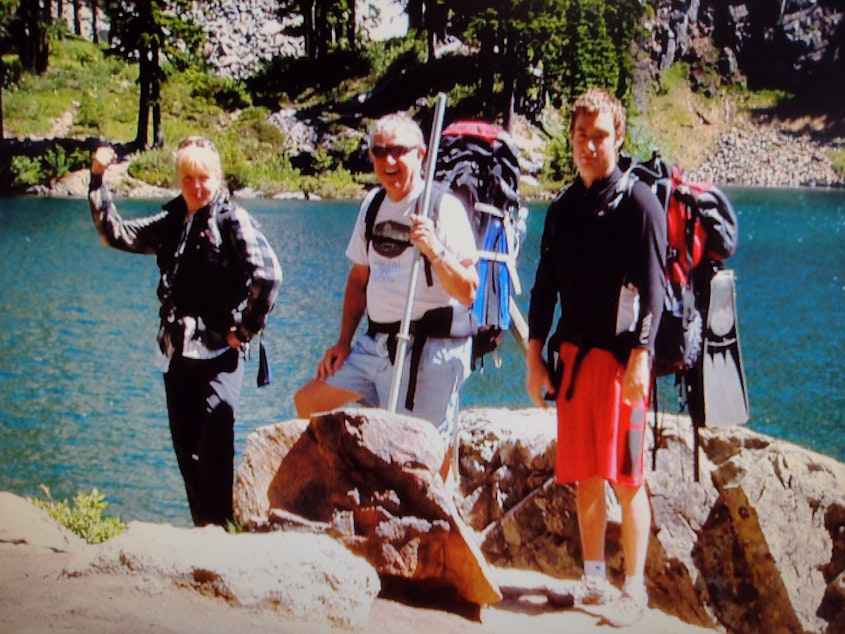Jerry Spring, 85, retired pilot, always helped others

Our series, Lives Lost, remembers loved ones who have died in the pandemic. You can share an obituary of someone special to you by filling out the form at the bottom of this story.
Jerry Spring spent his retirement helping people. After nearly three decades flying for Alaska Airlines, he worked with his church to feed unsheltered people, or to help stock the local food bank. Spring died of Covid-19 in April 2020. He was 85 years old.
Vickie Spring, his daughter, said her father was not one to shy away from doing things that made him uncomfortable to help others. One time he gave a slide presentation to his church after visiting a village in Guatemala. People there were dying of cancer from inhaling carcinogen because they cooked with open fires inside their homes.
“That didn’t sit well with my dad,” said Spring. Back at home, he used the presentation to talk about the problem. “He was nervous about getting in front of everybody… and asking for money,” recalled Spring. “But he wanted these people to have stoves in their homes, so it wouldn’t affect their health so poorly.”
The church ended up donating 300 stoves to the village, and helped build homes with cinder blocks.
Jerry Spring enjoyed the outdoors. Vickie remembered going on countless hikes with him as a child. There was always a part of the hike that she found challenging.
He told her a trick for when things get hard on the trails: Look at your feet, look at the next step you’re going to take and think about that; don’t focus on how steep the trail is, or how long the climb. She followed her father’s suggestion and realized when she can’t see the steepness or the whole mountain, it’s a visual illusion.
“That really stuck with me because it changed how I looked at challenging hardship,” said Spring. It was lesson not just for dealing with hard trails, but for navigating life’s challenges. “It gave me confidence that even though it might be too hard, if I just take it one step at a time, I can do it.”
Along the way they came upon a switchback. There was also what appeared to be a shortcut. She wanted to take that route. It would take them straight up to the mountain, she thought. And it would save some time.
But her father advised against it. Shortcuts, he said, are often riddled with hazards that aren’t always visible until you get to them. Then he pointed out how the shortcut was eroding the trail they were on. The more people use the shortcut, he said, the worse the trail gets.
Every place you go, he explained, you want to make it a better place. You don’t want to make it worse for people who come after you. You want to make it easier for them, not harder.
“I just took it and used it for the rest of my life,” said Spring. “That’s kind of how my dad lived; he tried to make things better wherever we went.”
Producer Alec Cowan composed music for this story.
If you've lost someone in Washington through Covid, we invite you to tell us about them--their story, their passions, and your memories of them.




